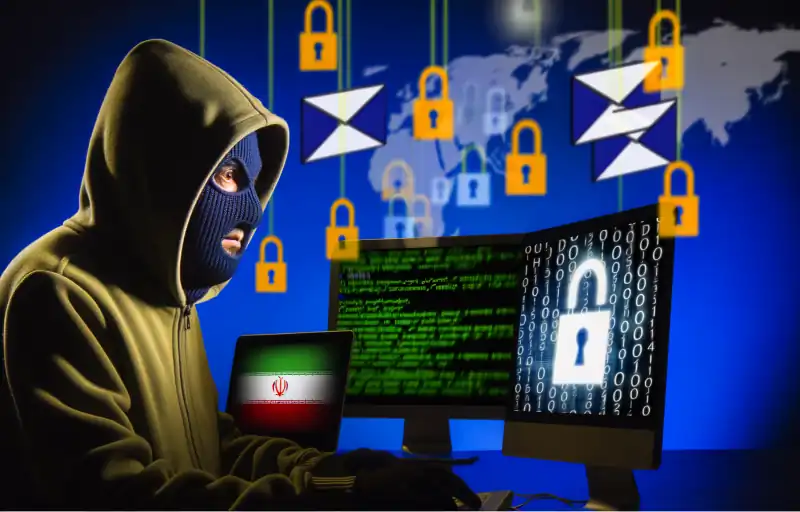
“APT42 Strikes: Iranian Cyber Group Targets U.S. Election in Phishing Onslaught”
APT42’s Phishing Offensive: Disrupting the U.S. Presidential Election
The Iranian government-backed cyber group APT42 has launched a massive phishing campaign aimed at disrupting the U.S. presidential election, according to Google’s Threat Analysis Group (TAG). This sophisticated threat actor, associated with Iran’s Islamic Revolutionary Guard Corps (IRGC), has been targeting high-profile individuals linked to both the Biden and Trump campaigns. The campaign is part of a broader effort by APT42 to support Iran’s political and military priorities through cyber espionage.
APT42 employs a variety of tactics in its phishing campaigns, including malware, phishing pages, and malicious redirects. It often exploits popular services like Google Sites, Drive, Gmail, Dropbox, and OneDrive to host its malicious content. One of their notable strategies involves creating fake domains that closely resemble legitimate organizations, a technique known as typosquatting (mistyping domain name).
The group’s phishing campaigns are highly tailored and rely heavily on social engineering to appear credible. They often send phishing links directly in emails or as part of seemingly benign PDF attachments. These emails are designed to engage the target and prompt them to enter their credentials on a fake landing page. APT42’s phishing kits are sophisticated enough to handle multi-factor authentication, making them particularly dangerous.
This recent campaign by APT42 is not just a random act of cyber aggression but appears to be a calculated move aligned with Iran’s broader geopolitical strategy. By targeting the U.S. presidential election, they aim to sow discord and undermine public trust in the electoral process. This tactic is not new; similar strategies have been employed by other nation-state actors in recent years, aiming to influence political outcomes and destabilize rival nations.
The implications of such campaigns are far-reaching. They not only threaten the integrity of democratic elections but also expose the vulnerabilities in the cybersecurity defenses of critical institutions. It raises an urgent need for enhanced security measures and more robust cybersecurity protocols among those involved in the electoral process.
In response to these threats, cybersecurity experts and government officials are ramping up their defenses. They are implementing stricter security measures, conducting more frequent security audits, and increasing awareness about the risks of phishing attacks. Public awareness campaigns are also crucial in educating individuals about how to recognize phishing attempts and protect their personal information online.
Moreover, international cooperation plays a key role in combating these cyber threats. By sharing intelligence and cybersecurity resources, countries can better anticipate and respond to the maneuvers of groups like APT42. This collaborative approach is essential for maintaining the security of global digital infrastructure and protecting against the disruptive activities of state-sponsored actors.
As we move closer to the U.S. presidential election, it is vital that all stakeholders remain vigilant and prepared to counter any attempts at interference. The efforts of groups like APT42 highlight the ongoing challenges in cybersecurity but also underscore the importance of resilience and collective action in safeguarding democratic processes.














